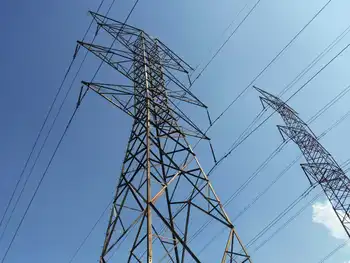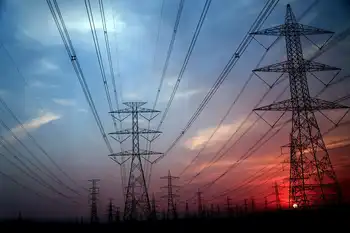Kyoto plan dubs gases `toxic'
OTTAWA, ONTARIO - Federal environment officials are hastily drafting a plan to curb carbon dioxide and five other greenhouse gases under the Kyoto accord by declaring them toxic under an existing law, according to government sources involved in the plan.
The sources said the greenhouse gases would be regulated under the Canadian Environmental Protection Act, an updated 1988 law that already lists almost 70 chemicals or chemical families as potentially toxic.
The proposed regulations, which could be published as early as next month, are almost certain to be controversial since "toxic" carbon dioxide is what people exhale and plants take in for photosynthesis.
As well, the gas industry has been protesting behind closed doors because the new regulations would also declare methane, or natural gas, toxic. The environmental protection act's current list of toxic substances specifically exempts methane, a greenhouse gas 21 times more potent than carbon dioxide in producing global warming.
The Kyoto Protocol, which goes into legal effect tomorrow, binds Canada to reduce average annual emissions of greenhouse gases in 2008-2012 to six per cent below 1990 levels. In 2003, emissions were 24 per cent above 1990.
Declaring greenhouse gases toxic would give Ottawa the legal clout it now lacks to enforce emission reduction targets negotiated under Kyoto with big emitters like the oil industry, power plants, mining and heavy manufacturing.
Federal sources said the environmental protection act's regulations could also backstop any voluntary agreement with the auto industry to improve fuel efficiency by 25 per cent before 2012.
But the sources could not confirm the federal cabinet had given formal approval to the environment department's Kyoto regulation plan.
A competing proposal by the natural resources department instead envisages a new Kyoto law targeted specifically at curbing greenhouse gas emissions.
"Since Environment Canada is steaming ahead with the (protection act) regulations, it seems likely that they expect to get the nod in cabinet," said an environmental activist who has been closely following Kyoto developments.
But experts say both a new law or regulations under the existing act could face serious legal challenges from industry, and perhaps from a province like Alberta, which opposes Kyoto.
The legal issues revolve around the federal constitutional authority to pass laws that stop short of outright bans on substances like carbon dioxide that are part of the natural environment.
Federal sources said the government will argue the Canadian Environmental Protection Act defines a substance as toxic if it "may constitute a danger to the environment on which life depends." The same approach was used to ban the manufacture and importation of ozone-attacking chemicals called CFCs, even though they weren't directly toxic to life.
The four other greenhouse gases that will be curbed under Kyoto are nitrous oxide, produced mostly from fertilizers, and three industrial gases — hydrofluorocarbons, perfluorocarbons and sulphur hexafluoride. Scientists estimate carbon dioxide accounts for about 60 per cent of human-induced global warming and methane, largely from landfills, for almost 20 per cent.
Related News

Crews have restored power to more than 32,000 Gulf Power customers
ESCAMBIA COUNTY, FLA. - Less than 24 hours ago, Hurricane Micheal devastated the residents in the Florida Panhandle with its heavy winds, rainfall and storm surge.
Gulf Power crews worked quickly through the night to restore power to their customers.
Linemen crews were dispatched from numerous of cities all over the U. S. to help those impacted by Hurricane Michael.
According to Jeff Rogers, Gulf Power spokesperson; “This was an unprecedented storm, and our customers will see an unprecedented response from Gulf Power. The destruction we’ve seen so far to this community and our electrical system is devastating — we’re seeing damage across…




